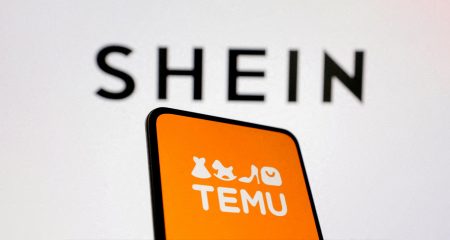 In the last few weeks, news about the online shopping space in South Africa has been trending. Chinese fast-fashion retailer Shein is menacing TFG, Mr Price and online clothing websites, and Takealot-subsidiary Superbalist, one of the best known South African online clothing stores, says it might have to cut staff because of increased pressure from competitors, among other factors.
In the last few weeks, news about the online shopping space in South Africa has been trending. Chinese fast-fashion retailer Shein is menacing TFG, Mr Price and online clothing websites, and Takealot-subsidiary Superbalist, one of the best known South African online clothing stores, says it might have to cut staff because of increased pressure from competitors, among other factors.
Founded in China, Shein has gained a strong foothold in the e-commerce market in South Africa.
But several reports have documented the company’s track record of alleged human rights violations and claim it is environmentally unsustainable — leaving some to wonder how consumers are still comfortable with buying its products.
A documentary by the UK’s Channel 4, Inside the Shein Machine, found that Shein employees were working 75-hour shifts with very little time off, violating Chinese labour laws. Many of the company’s manufacturing and packing processes in China and Europe were found by the programme to be run from informal factories set up in residential buildings without windows and emergency exits.
And underage people allegedly worked without contracts or minimum wage requirements, thereby allowing the company to pay its employees poorly for working 17-hour shifts. In one factory, they allegedly made a daily base salary of US$20 (about R380), which would then be docked by $14 if any garments had mistakes.
Shein’s sales climbed from $10-billion in 2020 to a whopping $100-billion in 2022, as low-priced fashion was shipped to 150 countries around the world.
The business model works like Amazon’s: a sprawling online marketplace brings together about 6 000 clothing factories in China under Shein’s label, while internal management software collects near-instant data about which items are selling and which aren’t, allowing the company to boost the popular items. According to an investigation by news website Rest of World, Shein “added anywhere between 2 000 and 10 000 individual styles to its app each day between July and December 2021”.
Sheiny ad campaigns
The clothes are also presented in polished advertising campaigns run by Shein’s head office. The company has poured millions into Google and Facebook campaigns, and even a social media reality show co-hosted by Khloé Kardashian. But the centre of its marketing strategy is its use of influencers and their #SHEINhaul videos: the company has partnered with countless micro-celebrities, fashion bloggers and reality show contestants who show off their Shein deliveries.
South Africa’s National Clothing Retailers Association and the Southern African Clothing and Textile Workers Union (Sactwu) have already complained to the government about Shein possibly exploiting customs tax loopholes – and the department of trade, industry& competition is investigating. (The department was approached to comment for this article but had not responded by the time of publication.)
Read: South Africa’s e-retailers do battle with Chinese fashion giant
Sactwu also argues that Shein is undermining government’s 2019 textile master plan. This plan wants retail sales of locally made clothing, textiles, shoes and leather goods to grow to R250-billion by 2030. Up to 65% of these goods must be produced locally, compared with the current 44%, according to the plan.
Retail sector analyst Chris Gilmour said it’s not surprising that Shein is doing well in South Africa. “They are very cheap and they are delivered to the door of the customer. They are definitely a threat to South African-based competitors in the same space.”
Gilmour said Shein has a number of advantages that competitors might regard as unfair, including operating from a low-wage jurisdiction and having a limited presence in South Africa.
 “But don’t expect much from the department of trade, industry & competition. When China says ‘jump’, South Africa asks, ‘How high?’”
“But don’t expect much from the department of trade, industry & competition. When China says ‘jump’, South Africa asks, ‘How high?’”
So, local fashion retailers have a real fight on their hands when it comes to Shein.
Although it didn’t blame Shein, Superbalist last week embarked on a section 189 retrenchments process, saying that growth post-Covid had not reached the levels that had been predicted.
Also, Superbalist is part of Takealot, which in turn is owned by Naspers, which is on a mission to achieve profitability in its e-commerce businesses by 2025.
Likely not helping Superbalist either is that the company’s founders, Claude Hanan and Luke Jedeikin, have launched Bash, a fashion e-commerce platform in the TFG (The Foschini Group) stable, that competes with it directly.
Read: Takealot has a lot on its plate
“We always knew that TFG had the ideal pillars to build a profitable, at-scale e-commerce business,” said TFG CEO Anthony Thunström on ecommerce.co.za, an industry-focused website.
“Over 20 million customers, 3 000 stores nationwide, more than 15 of South Africa’s most-loved store brands, a compelling rewards and credit offering, and our unique quick-response manufacturing capability give TFG numerous advantages over pure-play competitors. What we needed was a tech platform to bring all these elements together, and Bash does exactly that.
“We realised that the future battle was going to be against the Sheins and Amazons of the world,” Thunström added. – © 2023 NewsCentral Media




